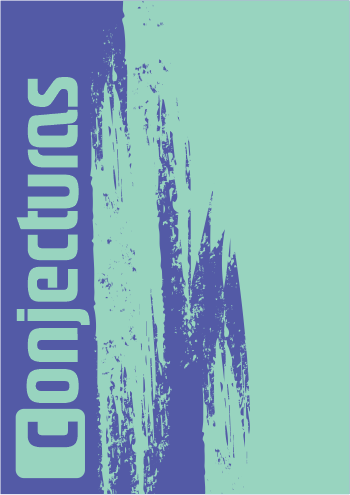Visual Market equilibrium model for power seller multi-microgrid based on a graphic game
DOI:
https://doi.org/10.53660/CONJ-082-104Palavras-chave:
KKT conditions, Local energy markets, Microgrids, Nash equilibrium, Pareto efficiencyResumo
Microgrids (MGs) have characteristics of flexibility and intelligence. These grids provide potential for integrating renewable energy sources. Hybrid Microgrids make possible to manage complementary between sources and storage schemes, enabling exploration of stronger commercial impact of these energy producing stations. This paper proposes a new market model of equilibrium operation for MGs in local energy markets. MGs remotely located in the grid are virtually associated to compete with other MGs better located. The model meets the interests of the MGs by remuneration of the delivered power and the other
stakeholders via loss reduction. A deterministic method based on reduction of the constraint set size and application of Karush-Kuhn-Tucker (KKT) conditions process visually the Nash equilibrium (NE) and the Pareto efficiency (PE). The non-cooperative static game has the ability to encourage the participation of small agents in the grid.
Downloads
Referências
ABBOTT, T.; KANE, D.; VALIANT, P. On the complexity of two-player win-lose games. In: 46th Annual IEEE Symposium on Foundations of Computer Science (FOCS'05) 2005, Pittsburgh, PA, USA. Anais[...] Pittsburgh, 2005. p. 113-122.
Bazarra, M.S., Sherali, H.D., Shetty, C.M. Nonlinear Programming. Theory and Algorithms. Third ed., Wiley-Interscience, USA, 2006.
BOLOUKAT, M. H. S.; FOROUD, A. A. Multiperiod planning of distribution networks under competitive electricity market with penetration of several microgrids, part i: Modeling and solution methodology. IEEE Transactions on Industrial Informatics, v. 14, n. 11, p. 4884-4894, 2018.
CHEN, T. et al. The next-generation u.s. retail electricity market with customers and prosumers - A bibliographical survey. Energies, v. 11, n. 1, 2018.
CUI, S. et al. A two-stage robust energy sharing management for prosumer microgrid. IEEE Transactions on Industrial Informatics, v. 15, n. 5, p. 2741–2752, 2019.
DASKALAKISI, C.; GOLDBERG, P. W.; PAPADIMITRIOU, C. H. The complexity of computing a Nash equilibrium. SIAM Journal on Computing, v.39(1) p. 195–259, 2009.
DOU, C. et al. Multi-agent-system-based bi-level bidding strategy of microgrid with game theory in the electricity market. Electric Power Components and Systems, v. 47, n. 8, p. 703–719, 2019.
EDGEWORTH, F. Mathematical Psychics. London: C. K. P., 1881.
FLEISCHHACKER, A. et al. Sharing solar pv and energy storage in apartment buildings: re_source allocation and pricing. IEEE Transactions on Smart Grid, v. 10, n. 4, p. 3963-3973,2019.
GUO, C. et al. Optimal energy management of multi-microgrids connected to distribution sys_tem based on deep reinforcement learning. International Journal of Electrical Power Energy Systems, v. 131, p. 107048, 2021.
HANNA, R. et al. Evaluating business models for microgrids - interactions of technology and policy. Energy Policy, v. 103, p. 47-61, 2017.
HINCAPIE, R. A.; GALLEGO, R. A.; MANTOVANI, J. R. A decomposition approach for integrated planning of primary and secondary distribution networks considering distributed generation. International Journal of Electrical Power Energy Systems, v. 106, p. 146 – 157, 2019.
IEEE. Institute of Electrical and Electronics Engineers. https//site.ieee.org/pes-testfeeders/ - Access on February 15, 2020. 2020
KHAN, M. W. et al. Optimal energy management and control aspects of distributed microgrid using multi-agent systems. Sustainable Cities and Society, v. 44, p. 855 – 870, 2019.
LASSETER, R. H.; PAIGI, P. Microgrid - A conceptual solution. In: 2004 IEEE 35th Annual Power Electronics Specialists Conference 2004, Aachen, Germany. Anais[...] Aachen, 2004 v. 6, p. 4285–4290.
LEE, J. et al. Distributed energy trading in microgrids - a game-theoretic model and its equilibrium analysis. IEEE Transactions on Industrial Electronics, v. 62, n. 6, p. 3524-3533, 2015.
MARZBAND, M. JAVADI M, DOMINGUEZ-GARCIA JL, MIRHOSSEINI MOGHADDAM M. Non-cooperative game theory based energy management systems for energy district in the retail market considering der uncertainties. IET Generation, Transmission Distribution, v. 10 (10), p. 2999–3009, 2016.
MENG, L. et al. Microgrid supervisory controllers and energy management systems - A literature review. Renewable and Sustainable Energy Reviews, v. 60, p. 1263–1273, 2016.
MILLER, R. Optimization foundations and applications. Wiley Interscience, 2000.
NEUMANN, J. V.; MORGENSTERN, O. Games and economic behavior. Princeton University Press, 1944.
PEREZ, A. P.; SAUMA, F. D. M. E. E.; HOBBS, B. F. The economic effects of interregional trading of renewable energy certificates in the U.S. Wecc. The Energy Journal, v. 37, n. 4, 2016.
QUASHIE, M. et al. Optimal planning of microgrid power and operating reserve capacity. Applied Energy, v. 210, p. 1229-1236, 2018.
ROSEN, J. Existence and uniqueness of equilibrium points for concave n-person games. Econometrica, v. 33, n. 3, p. 520–534, 1965.
SHAH, S.; MITCHELL, J. E.; KUPFERSCHMID, M. An ellipsoid algorithm for equality_constrained nonlinear programs. Computers Operations Research, v. 28, n. 1, p. 85 – 92, 2001.
TANG, Y. et al. A game theoretical approach based bidding strategy optimization for power producers in power markets with renewable electricity. Energies, v. 10, n. 5, 2017.
XU, Y.; ZHANG, J. A two-layer two-stage dispatching strategy for active distribution network with micro-grid considering multiple interactions. Electric Power Systems Research, v. 187, p. 106504, 2020.
ZAREI, M.; SALAMI, A. Improving the game theoretic analysis of electricity auctions applied in medium markets. Journal of Computational Science, v. 17, p. 83 – 96, 2016.
Downloads
Publicado
Como Citar
Edição
Seção
Licença
Copyright (c) 2021 Conjecturas

Este trabalho está licenciado sob uma licença Creative Commons Attribution 4.0 International License.



